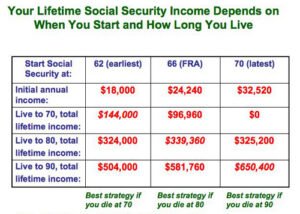Retiring in Thailand offers a blend of vibrant culture, warm climate, and low cost of living, making it an attractive choice for many. When considering Thailand as your retirement destination, you’ll discover benefits like affordable healthcare and a welcoming expat community. However, the challenges of language barriers and navigating visa regulations can be daunting. This article delves into both the advantages and drawbacks to help you make an informed decision about retiring in Thailand. Have you ever dreamed of spending your retirement years in an exotic, sun-drenched paradise? If so, Thailand might be the perfect option for you. Whether it’s the allure of white sandy beaches, warm hospitality, or a lower cost of living, there are plenty of reasons why Thailand is a favorite destination for retirees from around the world. However, like any significant life decision, retiring in Thailand comes with its own set of pros and cons that you should carefully weigh before planning your move.

Check out our recommended retirement gifts!
Why Consider Thailand for Retirement?
Affordable Cost of Living
One of the primary reasons many people consider retiring in Thailand is the affordable cost of living. Compared to Western countries, you can enjoy a high quality of life at a fraction of the cost. Whether it’s rent, groceries, or healthcare, your dollars can go much farther here.
Beautiful Scenery
Thailand is renowned for its stunning natural landscapes. From the mountains in Chiang Mai to the beaches in Phuket, the country offers a variety of environments to see and enjoy. This natural beauty can add a sense of tranquility and well-being to your retirement life.
Warm Climate
If you enjoy warm weather year-round, Thailand’s tropical climate might be perfect for you. Say goodbye to cold winters and embrace the sunshine.
Friendly Locals
Known as the “Land of Smiles,” Thailand is famous for its hospitality and friendliness. Thai people are generally welcoming and warm towards foreigners, making it easier to adapt to your new surroundings.
The Pros of Retiring in Thailand
Lower Cost of Living
For many retirees, the primary advantage of moving to Thailand is the lower cost of living. Here’s a breakdown of typical monthly expenses:
| Expense | Estimated Cost (USD) |
|---|---|
| Rent | $300-$800 |
| Utilities | $50-$100 |
| Groceries | $200-$300 |
| Dining out | $100-$200 |
| Transportation | $20-$50 |
| Healthcare | $50-$150 |
These estimates can vary depending on the city you choose to live in and your lifestyle. Still, overall, you’ll find that you can live comfortably without spending as much as you would back home.
Access to Quality Healthcare
Thailand has become a hub for medical tourism, thanks to its high-quality healthcare services. Major cities like Bangkok and Chiang Mai boast hospitals that meet international standards. Medical procedures and consultations are significantly cheaper than in Western countries, making healthcare accessible and affordable.
Diverse Expat Community
Thailand attracts a diverse range of expatriates, and there are plenty of communities where you can make new friends and connections. These communities can offer support and provide valuable information, making your transition smoother.
Rich Culture and History
Thailand is steeped in rich cultural traditions and history. Whether you’re interested in exploring ancient temples, learning Thai cooking, or participating in local festivals, there’s always something to engage your interests.
Easy Travel Opportunities
Thailand’s location makes it a perfect base for exploring other parts of Asia. Countries like Vietnam, Cambodia, and Malaysia are a short flight away, allowing you to take frequent, affordable trips for a new adventure anytime you like.
Check out our recommended retirement gifts!
The Cons of Retiring in Thailand
Language Barrier
While many Thai people in urban areas speak English, especially in the tourism sector, the language barrier can still pose challenges. Learning some basic Thai can go a long way in making your life more comfortable, but becoming fluent is a significant commitment.
Bureaucratic Hurdles
Navigating Thailand’s bureaucracy can be daunting, especially when it comes to securing the right type of visa, understanding residency requirements, or dealing with property laws. Patience and possibly hiring local legal assistance will be necessary.
Cultural Differences
Adapting to a new culture can be challenging. Thai customs and social norms can take some getting used to, and misunderstandings can occur. A willingness to learn and adapt is crucial for a smooth transition.
Climate Challenges
While Thailand’s tropical climate is appealing to many, it can be a downside for others. The heat and humidity can be intense, and the rainy season can bring about its own set of challenges like flooding and an increase in mosquitoes.
Healthcare in Rural Areas
While healthcare in urban centers is top-notch, the same can’t always be said for rural areas. If you intend to retire in a less populated part of the country, you may need to travel to a city for more complex medical treatment.
Visa Requirements
Visa requirements for retirees can be complex and are subject to change. You typically need a Retirement Visa (Non-Immigrant O-A or O-X), which has specific financial requirements and renewal conditions. Keeping up with these regulations can be tedious.
Financial Considerations
Currency Exchange
Currency exchange rates can impact your retirement budget. The Thai Baht can fluctuate against your home country’s currency, sometimes affecting your purchasing power. It’s advisable to keep an eye on exchange rates and perhaps consult a financial advisor.
Banking and Taxes
Understanding how to manage your finances in a foreign country is essential. Thai banks offer services tailored to expatriates, but you’ll need to understand the tax implications both in Thailand and your home country. Double taxation treaties exist between Thailand and many countries, making it easier to navigate your tax obligations.
Property Ownership
Foreigners can own condominiums outright, but owning land or a house can be more complicated due to Thai laws. Many retirees lease land for extended periods, but this comes with its own set of legal considerations. Consulting a legal expert can help you navigate these complexities.

Practical Tips for Retiring in Thailand
Research Cities
Not all Thai cities offer the same advantages. Research different cities to find one that aligns with your lifestyle and budget.
- Bangkok: Vibrant city life, high-quality healthcare, more expensive.
- Chiang Mai: Cooler climate, rich culture, more affordable.
- Phuket: Beach lifestyle, touristy, slightly higher cost of living.
- Hua Hin: Quiet, coastal area with a growing expat community.
Learn Basic Thai
Learning basic Thai can make your day-to-day life much easier. Apps like Duolingo or enrolling in a language course can be very helpful. Even a basic understanding can help you build rapport with locals and navigate daily activities more easily.
Secure a Reliable Healthcare Plan
Even though healthcare is affordable, it’s crucial to have a solid health insurance plan. Many international insurance companies provide health plans specifically tailored for expatriates in Thailand.
Understand Legal Requirements
Make sure you understand all the legal requirements for living in Thailand long-term. This includes visa regulations, property laws, and tax obligations. Consulting with a legal expert is advisable to ensure you comply with all local laws.
Social Aspects of Retiring in Thailand
Making Friends
Creating a social circle is crucial for a fulfilling retirement life. Engage in local events, join expat groups, or take part in recreational activities to meet new people.
Participating in Community
Many retirees find joy in participating in community activities, whether it’s volunteering, joining a club, or taking up a hobby. Thailand offers numerous opportunities to stay socially active.
Family Visits
If family visits are important, living in a city with a well-connected international airport would be beneficial. Bangkok and Phuket have international airports with multiple global connections, making it easier for family and friends to visit.
Conclusion
Retiring in Thailand offers a unique blend of affordability, stunning natural beauty, and rich cultural experiences. However, it’s essential to weigh the pros and cons carefully. From lower living costs and high-quality healthcare to potential language barriers and bureaucratic hurdles, every aspect should be considered to make an informed decision.
By understanding the various factors involved and taking practical steps to prepare, you can pave the way for a rewarding and fulfilling retirement in this Southeast Asian paradise. Thailand could be your dream retirement destination; just make sure it aligns well with your lifestyle and personal needs.
So, have you started packing your bags yet, or do you have more questions about retiring in Thailand? Let’s continue exploring this fascinating journey together!



